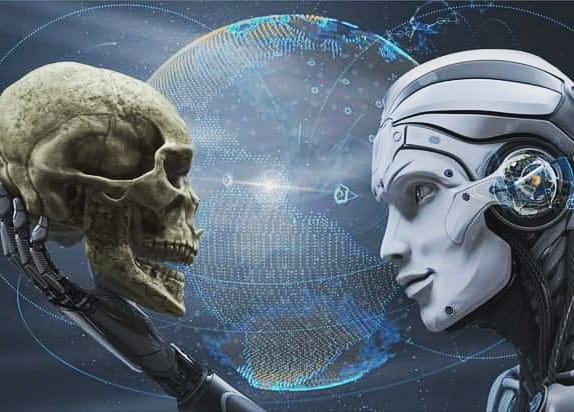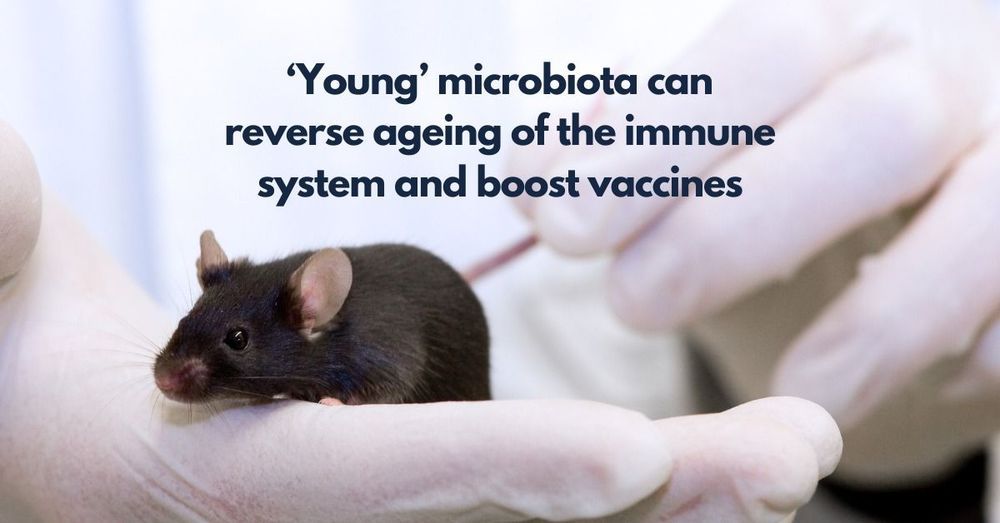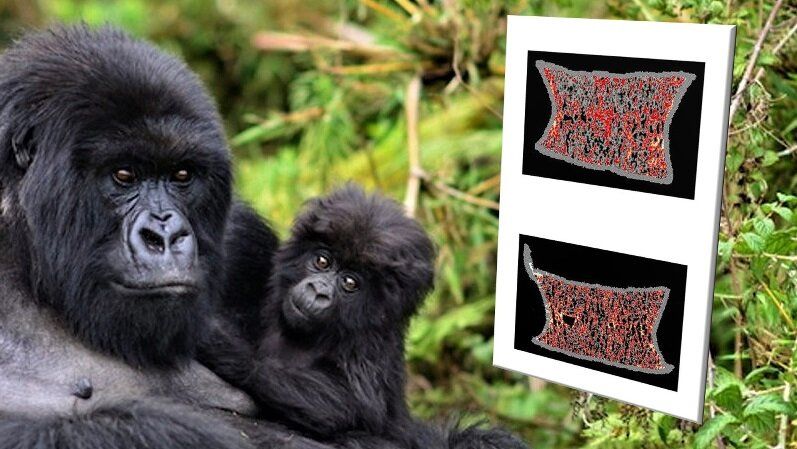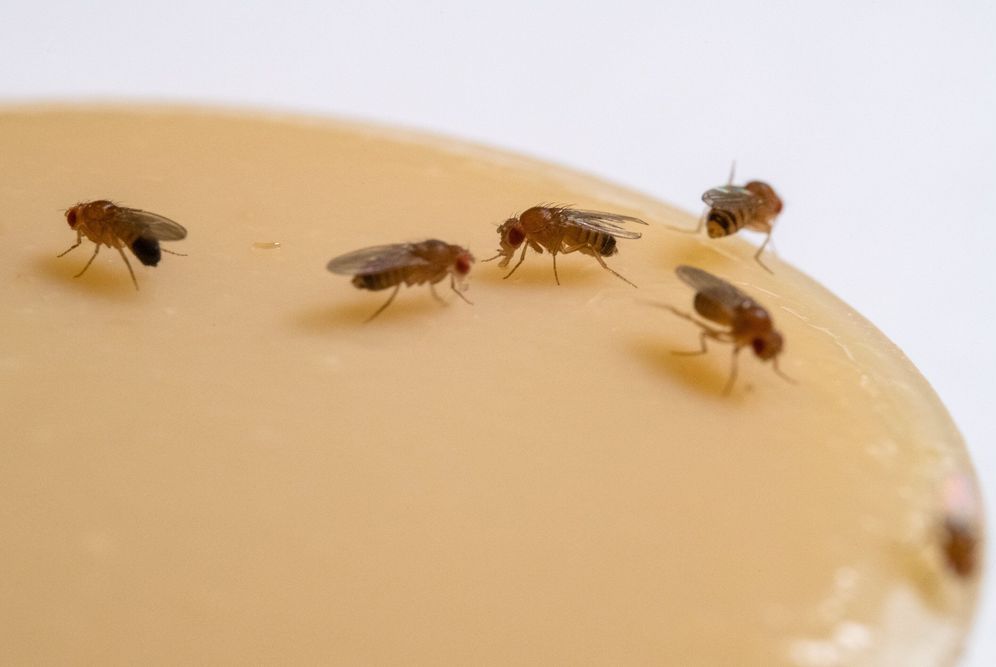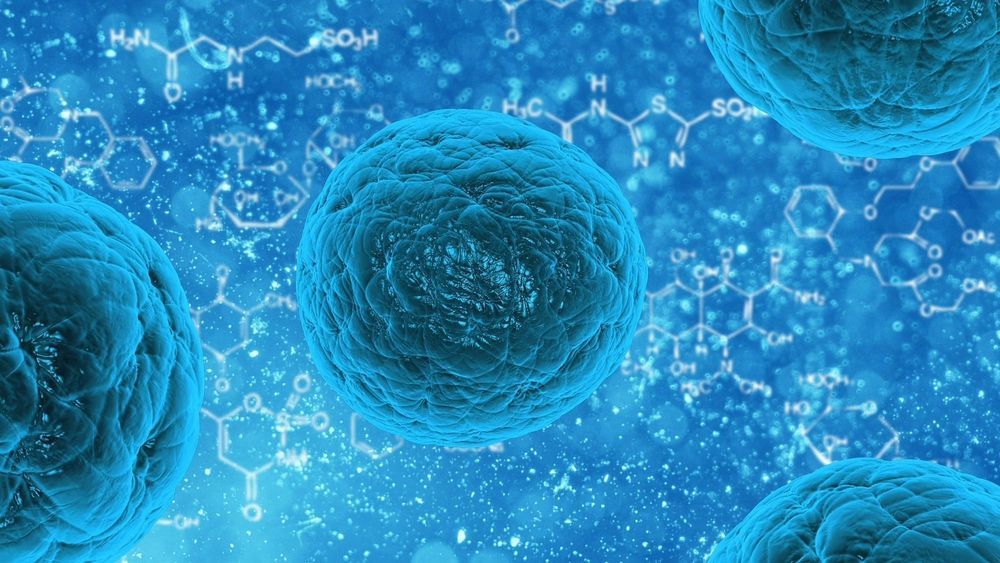Founder of MakeLoveNotPorn, and internationally famous advertising executive and public speaker, talks of Sex-Tech, a burgeoning trillion dollar industry, on the ideaXme show — #Ideaxme #MoveTheHumanStoryForward #CindyGallop #MakeLoveNotPorn #SexTech #Sexuality #SociallyAcceptableSex #Pornography #Porn #Orgasm #ErectileDysfunction #Biohacking #Viagra #Wellness #Health #Longevity #DisruptAging #Aarp #IfWeRanTheWorld #BartleBogleHegarty #Advertising #PublicRelations #TEDTalk #IraPastor #Bioquark #Regenerage AARP Disrupt Aging.
Archive for the ‘life extension’ category: Page 287
Oct 3, 2020
The Road to Human 2.0
Posted by Kelly Idehen in categories: 3D printing, biotech/medical, computing, genetics, life extension, nanotechnology, neuroscience, transhumanism
In the coming 2020s, the world of medical science will make some significant breakthroughs. Through brain implants, we will have the capability to restore lost memories.
~ The 2020s will provide us with the computer power to make the first complete human brain simulation. Exponential growth in computation and data will make it possible to form accurate models of every part of the human brain and its 100 billion neurons.
~ The prototype of the human heart was 3D printed in 2019. By the mid- 2020s, customized 3D- printing of major human body organs will become possible. In the coming decades, more and more of the 78 organs in the human body will become printable.
Oct 2, 2020
‘Young’ microbiota can reverse ageing of the immune system and boost vaccines
Posted by John Davies in categories: biotech/medical, life extension
Every human being is home to trillions of microbes that are collectively known as the microbiota. Recent research into how these microbes affect the immune system may explain why older people are more vulnerable to disease and suggest ways to tackle that vulnerability.
Scientists at The University of Edinburgh’s Roslin Institute, led by Professor Neil Mabbott, discovered that as mice get older they showed a marked decrease in the number of M cells found in the lining of the gut. These are specialised cells that look out for infections and trigger the early stages of the immune response. Fewer M cells means a weaker immune system. At the same time, the researchers found that the older mice had depleted microbiota compared to younger mice. The microbiota were less diverse and certain species known to decrease inflammation of the gut in humans were missing.
Oct 2, 2020
Could a poo transplant one day be the secret of eternal youth?
Posted by Kevin Huang in categories: biotech/medical, life extension, neuroscience
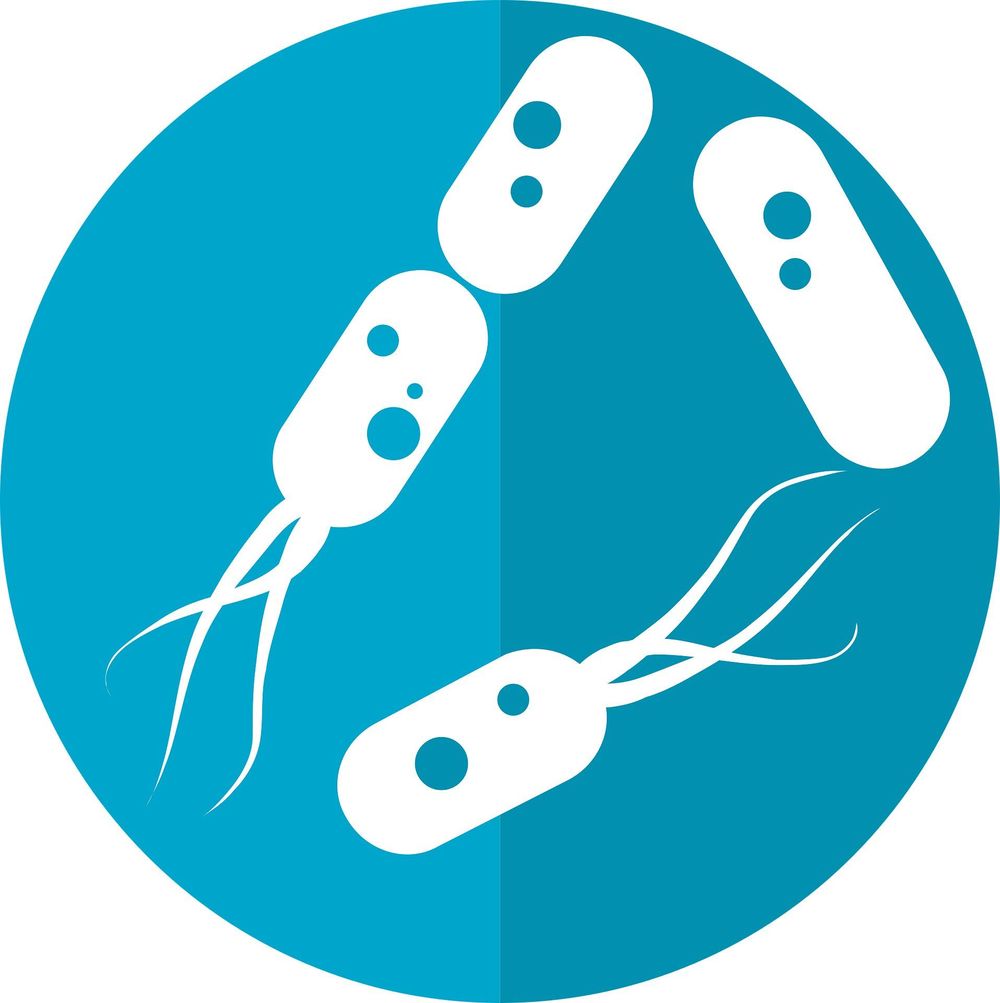
Fecal transplants could one day be used as a therapy to restore cognitive function in the elderly—according to new research from the University of East Anglia, the University of Florence and the Quadram Institute.
A new study published today shows how fecal transplants from older to younger mice altered their gut microbiome, which in turn impacted their spatial learning and memory.
Continue reading “Could a poo transplant one day be the secret of eternal youth?” »
Oct 1, 2020
INTERNATIONAL CONFERENCE OF FUTURE AFRICA: SUSTAINING THE SOURCE. DAY 3 — Longevity
Posted by Ira S. Pastor in categories: education, geopolitics, life extension, lifeboat, transhumanism

Beyond 2030 with Gennady Stolyarov II of the United States Transhumanist Party: Growing a Mainstream Transhumanist Movement In “2030: Beyond the Film” Direct…Gennady Stolyarov II: Growing a Mainstream Transhumanist Movement.
–
Transdisciplinary Agora for Future Discussions (TAFFD’s) is a global nongovernmental organization registered in the USA that serves as a futuristic think tank endeavored to the education and engagement urgency to help people understand the benefits and challenges of technology applied to high-impact industries and disciplines across the world.
Oct 1, 2020
Crowdsourcing the Cure for Aging | Life Extension Research, Lifespan.IO, and You
Posted by Montie Adkins in categories: biotech/medical, education, life extension
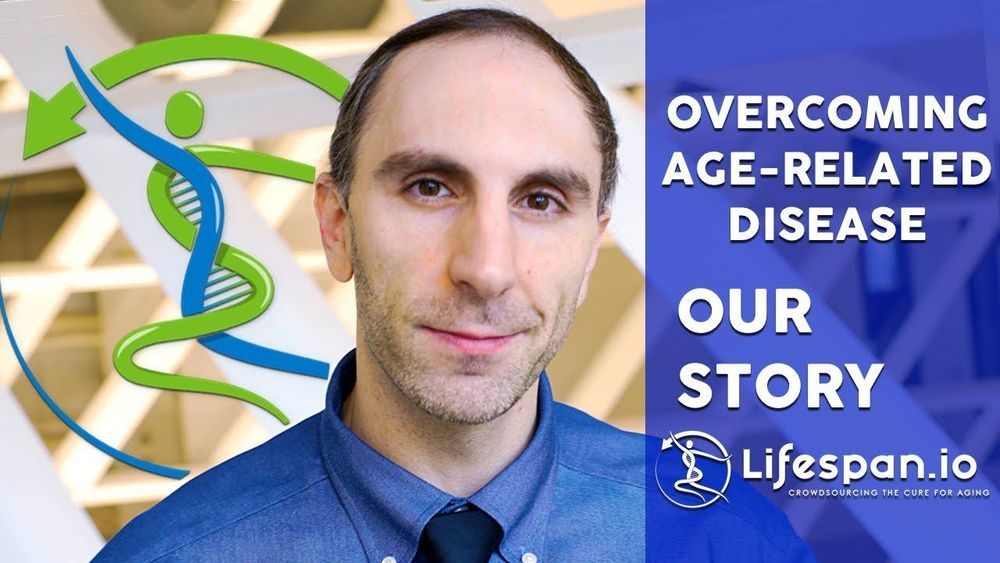
LEAF president Keith Comito explains the story of Lifespan.io — a crowdsourcing platform and community to support biomedical research aimed at extending healthy human lifespan.
▼▼ More info and links below ▼▼
HOW CAN YOU SUPPORT US?
▀▀▀▀▀▀▀▀▀▀▀▀▀▀▀▀▀▀▀▀▀▀▀▀▀▀
LEAF / Lifespan.io is a 501©(3) nonprofit organization. Everything we’ve done thus far and everything we will do in the future is thanks to your support — please stand with us to fight the diseases of aging and increase healthy human lifespan.
Sep 30, 2020
No bones about it: Wild gorillas don’t develop osteoporosis like their human cousins
Posted by Kevin Huang in categories: biotech/medical, life extension
In a study of gorilla skeletons collected in the wild, Johns Hopkins Medicine researchers and their international collaborators report that aging female gorillas do not experience the accelerated bone loss associated with the bone-weakening condition called osteoporosis, as their human counterparts often do. The findings, they say, could offer clues as to how humans evolved with age-related diseases.
The study was published on Sept. 21, 2020, in Philosophical Translations of the Royal Society B.
“Osteoporosis in humans is a really interesting mechanical problem,” says Christopher Ruff, Ph.D., professor at the Center for Functional Anatomy and Evolution at the Johns Hopkins University School of Medicine. “In terms of natural selection, there is no evolutionary advantage in developing bone loss with aging to the point of a potential fracture. By looking at close relatives of humans on the evolutionary tree, we can infer more about the origins of this condition.”
Sep 30, 2020
Mutations that affect aging: More common than we thought?
Posted by Kevin Huang in categories: biological, evolution, life extension
The number of mutations that can contribute to aging may be significantly higher than previously believed, according to new research on fruit flies. The study by scientists at Linköping University, Sweden, supports a new theory about the type of mutation that can lie behind aging. The results have been published in BMC Biology.
We live, we age and we die. Many functions of our bodies deteriorate slowly but surely as we age, and eventually an organism dies. This thought may not be very encouraging, but most of us have probably accepted that this is the fate of all living creatures—death is part of life. However, those who study evolutionary biology find it far from clear why this is the case.
“The evolution of aging is, in a manner of speaking, a paradox. Evolution causes continuous adaptation in organisms, but even so it has not resulted in them ceasing to age,” says Urban Friberg, senior lecturer in the Department of Physics, Chemistry and Biology at Linköping University and leader of the study.
Sep 29, 2020
Understanding the effect of aging on the genome
Posted by Kevin Huang in categories: biotech/medical, genetics, life extension
Not too much here, but longevity research fans might like.
Time may be our worst enemy, and aging its most powerful weapon. Our hair turns gray, our strength wanes, and a slew of age-related diseases represent what is happening at the cellular and molecular levels. Aging affects all the cells in our body’s different tissues, and understanding its impact would be of great value in fighting this eternal enemy of all ephemeral life forms.
The key is to first observe and measure. In a paper published in Cell Reports, scientists led by Johan Auwerx at EPFL started by asking a simple question: how do the tissues of aging mice differ from those of mice that are mere adults?
Continue reading “Understanding the effect of aging on the genome” »
Sep 29, 2020
Blocking enzyme’s self-destruction process may mitigate age-related diseases
Posted by Kevin Huang in categories: biotech/medical, life extension
Stopping the cannibalistic behavior of a well-studied enzyme could be the key to new drugs to fight age-related diseases, according to a new study published online in Nature Cell Biology. For the first time, researchers in the Perelman School of Medicine at the University of Pennsylvania show how the self-eating cellular process known as autophagy is causing the SIRT1 enzyme, long known to play a role in longevity, to degrade over time in cells and tissue in mice. Identifying an enzymatic target is an important step that may lead to new or modified existing therapeutics.
“Blocking this pathway could be another potential approach to restore the level of SIRT1 in patients to help treat or prevent age-related organ and immune system decline,” said first author Lu Wang, Ph.D., a postdoctoral researcher in the lab of Shelly Berger, Ph.D., a professor of Cell and Developmental Biology in the Perelman School of Medicine and a professor of Biology in the School of Arts and Sciences at Penn. Berger also serves as senior author on the paper.
“The findings may be of most interest to the immune aging field, as autophagy’s role in SIRT1 in immune cells is a concept that hasn’t been shown before,” Wang added. “Exploiting this mechanism presents us with a new possibility of restoring immune function.”

